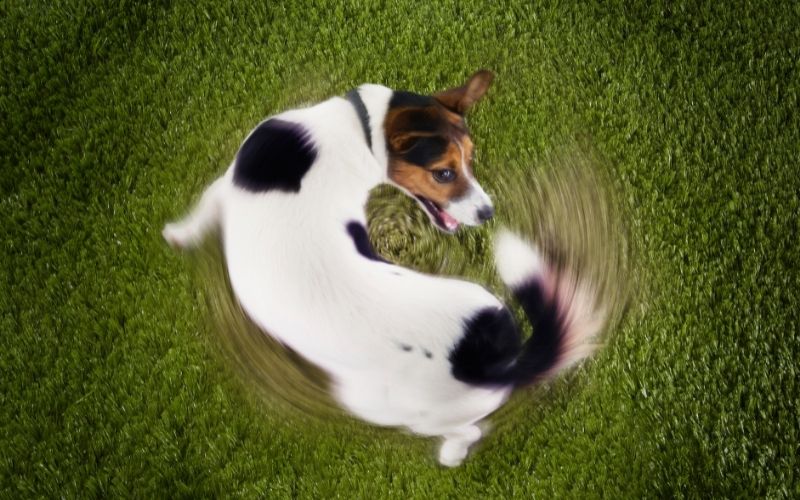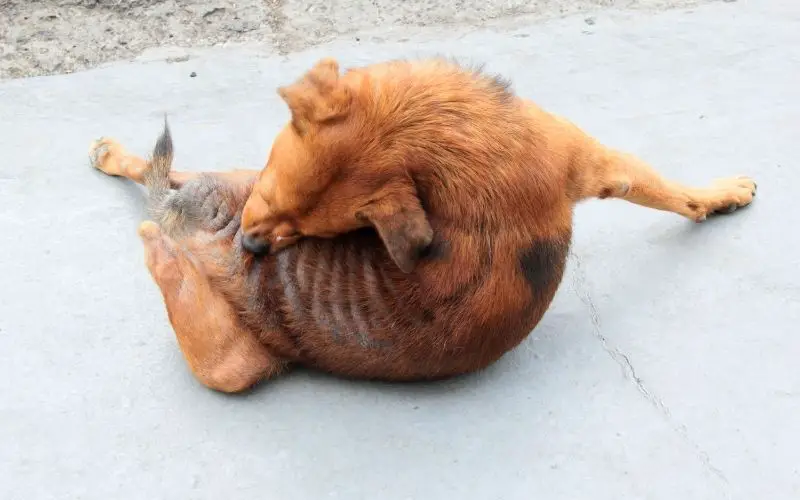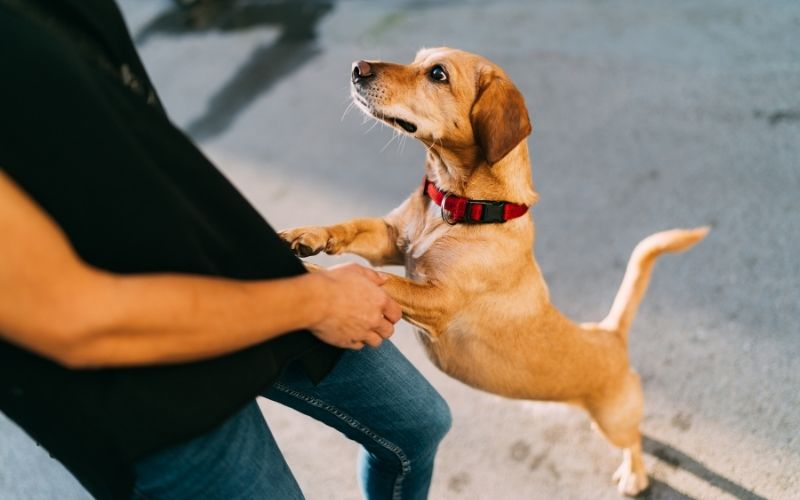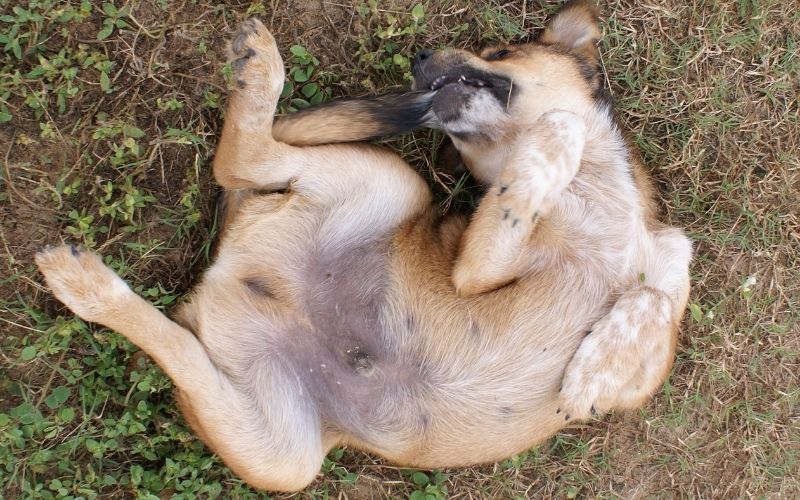If you’re a dog owner, you’ve probably wondered why your pet spends so much time chasing his or her tail.
It’s actually quite common for dogs to do this, but the reason why is still a mystery to most people.
There is no one reason why dogs do this as they are all different.
In this post, we’ll take a closer look at why dogs chase their tails and offer some possible explanations for this behaviour.
Dogs often chase their tails for a variety of reasons. Some dogs may do it out of boredom, some may do it because they are anxious or excited, and others may do it because they have a medical condition that causes them to feel an urge to chase their tails.

Your dog is bored
One of the most common reasons dogs chase their tails is because they are bored.
If your dog is left alone for long periods of time with nothing to do, he or she may start chasing their tail out of sheer boredom.
This is especially true for high-energy breeds who need a lot of exercise and stimulation.

Your dog’s tail will provide him with something to try and catch and, because it’s not easy he will burn energy chasing it in circles.
If your dog is bored, the best solution is to provide them with more exercise, toys and playtime.
Your dog is anxious or excited
Some dogs may chase their tails because they are anxious or excited. If your dog is chasing his tail in an obsessive way, it may be a sign of an underlying anxiety disorder.
Dogs with anxiety may also pace back and forth, whine or bark excessively, urinate more frequently, and have a loss of appetite.

If your dog is exhibiting any of these behaviours, it’s important to talk to your veterinarian as soon as possible.
Your dog has a medical condition
There are a few medical conditions that can cause dogs to chase their tails. One of these conditions is flea allergy dermatitis, which is an allergic reaction to flea bites.
Fleas have a tendency to gather at the top of a dog’s tail and they can be extremely irritating.
Your dog may be chasing his tail due to flea infestation in an attempt to relieve the itchiness and discomfort caused by the bites.

Other medical conditions that can cause dogs to chase their tails include neurological disorders, intestinal parasites, and food allergies.
If your dog is displaying any other strange behaviours along with tail chasing, it’s important to have him checked out by a veterinarian to rule out any underlying medical conditions.
Your dog is acting his age
Puppies and young dogs often chase their tails as part of their natural playfulness and curiosity and this type of behaviour is quite normal for youngsters.
As they grow older, most dogs will outgrow this behaviour.
However, some older dogs may start chasing their tails again if they become bored or anxious.
Most dogs will eventually grow out of the habit and it’s not harmful to them.
Easy Peasy Puppy Squeezy: The UK's No.1 Dog Training Book
£4.00 in stock
45 used from £0.42
Your dog could be attention seeking
Dogs are very clever creatures and they quickly learn that certain behaviours will get them the attention they crave from their owners.
If your dog has learned that chasing his tail gets you to laugh or give him a treat, he may do it more often in an attempt to get your attention.

The best way to deal with this behaviour is to ignore it completely.
Do not laugh, scold, or give your dog any attention when he is chasing his tail.
Eventually, he will learn that this behaviour does not get him the reaction he wants and he will stop doing it.
He is having fun!
Last but not least, your dog may simply be chasing his tail because he enjoys it.
Dogs are playful creatures and many of them love to chase their tails just for the fun of it.
If your dog is healthy and happy, there is no need to worry about this behaviour.
Just sit back and enjoy watching him have a good time!

Is it bad for my dog to chase his tail?
In most cases, no. Dogs chase their tails for a variety of reasons and, as long as your dog is healthy and happy, there is no need to worry about this behaviour.
However, if your dog is exhibiting other strange behaviours along with tail chasing or if he seems to be doing it obsessively, it’s important to talk to your veterinarian as soon as possible.
Chasing his tail can be a sign of an underlying medical condition and it’s important to rule out any potential health problems.
Should I stop my dog from chasing his tail?
If your dog is healthy and happy, there is no need to stop him from chasing his tail.
However, if you are concerned about this behaviour, the best way to deal with it is to ignore it completely.
Do not laugh, scold, or give your dog any attention when he is chasing his tail. Eventually, he will learn that this behaviour does not get him the reaction he wants and he will stop doing it.
Final words
Dogs chase their tails for a variety of reasons, including boredom, anxiety, attention seeking, and simply because they enjoy it.
Most dogs will eventually grow out of the habit and it’s not harmful to them.
However, if your dog is exhibiting other strange behaviours along with tail chasing or if he seems to be doing it obsessively, it’s important to talk to your veterinarian as soon as possible.
Chasing his tail can be a sign of an underlying medical condition and it’s important to rule out any potential health problems.
Read Next
- Can Dogs Find Their Way Home? Understanding Canine Navigation Abilities
- Do dogs dream?
- Unraveling the Myth. Do Dogs Eat Homework?
- Understanding Dog Zoomies: Why Puppies and Spaniels Run Around Like Crazy
- Why Do Dogs Sleep on Their Backs? Unveiling the Sleeping Habits of Dogs
- Do dogs remember where they bury things?












